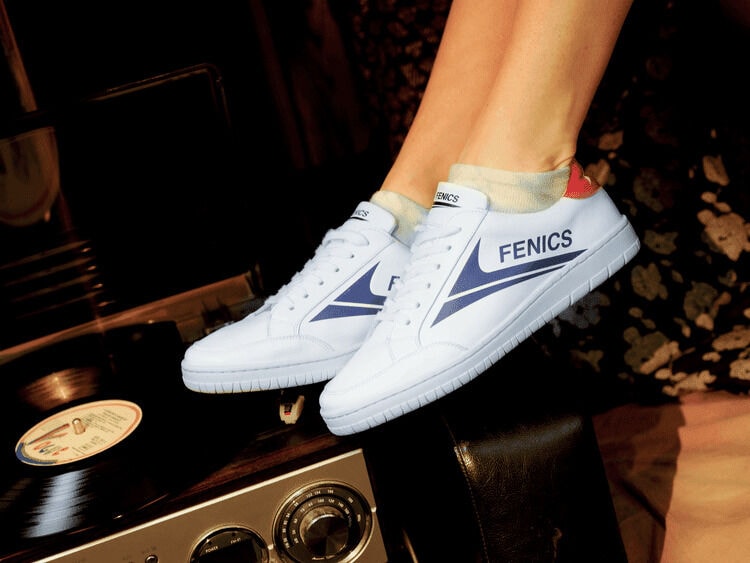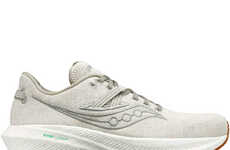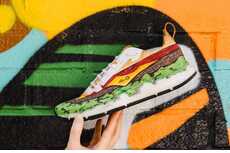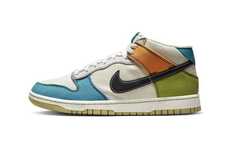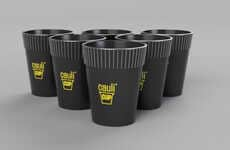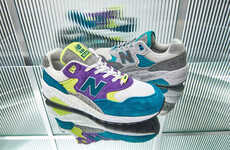
Fenics' Footwear Boasts Half of the Carbon Footprint of Other Brands
Laura McQuarrie — October 20, 2022 — Eco
References: fenics-shoes & vegconomist
Fenics makes retro vegan sneakers that are not only stylish but sustainable too, since they boast half the carbon footprint of other brands on the market. The 80s-inspired kicks only need half of the amount of water and half of the amount of energy to produce as compared to conventional sneakers, and this is all possible because of the use of sustainable, plant-based materials.
While the outer part of Fenics' 80s-style sneakers are made from apple fibres, the inner lining makes the most of cotton. With a recycled polyurethane insole and an outsole that combines natural and synthetic rubber, the shoes stand out as simple, stylish footwear choices. At the end of their usable life, the sneakers can be returned to the French company for partial recycling and a €20 credit.
While the outer part of Fenics' 80s-style sneakers are made from apple fibres, the inner lining makes the most of cotton. With a recycled polyurethane insole and an outsole that combines natural and synthetic rubber, the shoes stand out as simple, stylish footwear choices. At the end of their usable life, the sneakers can be returned to the French company for partial recycling and a €20 credit.
Trend Themes
1. Plant-based Sneakers - Disruptive innovation opportunity: Developing sustainable footwear made entirely from plant-based materials.
2. Eco-friendly Footwear - Disruptive innovation opportunity: Creating footwear solutions with significantly reduced carbon footprints as compared to conventional brands.
3. Circular Economy Sneakers - Disruptive innovation opportunity: Designing a closed-loop system for sneakers, allowing for recycling or upcycling at the end of their usable life.
Industry Implications
1. Footwear Manufacturing - Disruptive innovation opportunity: Re-evaluating material choices, production processes and company policies around sustainability to reduce the environmental impact of footwear manufacturing.
2. Fashion and Apparel Retail - Disruptive innovation opportunity: Investing in sustainable and eco-friendly fashion trends to respond to growing consumer demand and push for circular economy models.
3. Sustainable Materials Production - Disruptive innovation opportunity: Developing innovative, sustainable materials that can be used for a wide range of applications including footwear, textiles and beyond.
3.9
Score
Popularity
Activity
Freshness






